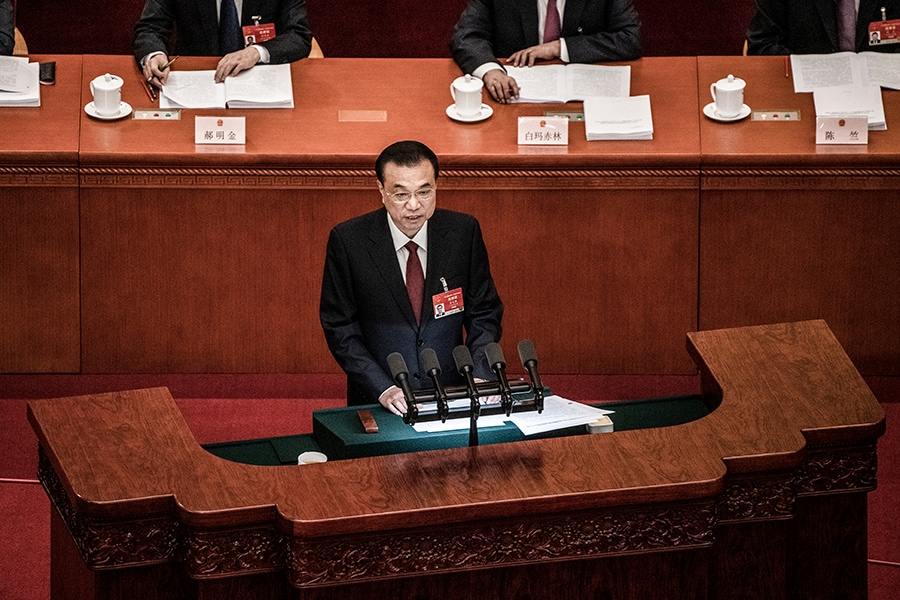
China sets economic growth target of 'over 6%' this year
China's growth target comes as the virus has been all but halted within its borders, and as the number of cases has fallen steeply in recent weeks in countries like the United States and India
 Beijing, China, March 05: Chinese Premier Li Keqiang speaks at the opening session of the National People's Congress at the Great Hall of the People on March 5, 2021 in Beijing, China.
Beijing, China, March 05: Chinese Premier Li Keqiang speaks at the opening session of the National People's Congress at the Great Hall of the People on March 5, 2021 in Beijing, China.
Image: Kevin Frayer/Getty Images
BEIJING — One year after China was battered by the coronavirus, the government promised Friday a robust return to economic growth of “over 6%,” a signal that China is ready to do what it takes to keep the world’s second-largest economy running strongly.
As top officials laid out a confident vision for China’s ascent in the coming years, they also drew a hard line on perceived threats to the Communist Party’s authority in Hong Kong with a move to restrict democratic elections there, in the wake of the anti-government protests that engulfed the city in 2019.
The commitment to a relatively rapid economic growth rate is a positive sign for the global economy. It suggests that Beijing is willing to free up money to keep its economy humming rather than slowing down to address its ever-rising tide of debt. That means the Chinese economy will continue to buy much of what the world makes, including iron ore and computer chips.
China’s growth target comes as the virus has been all but halted within its borders, and as the number of cases has fallen steeply in recent weeks in countries like the United States and India.
China’s target for this year may be easy to achieve. It is well below what many Western economists expect the Chinese economy to realize. They have been forecasting an expansion of about 8%, as exports of manufactured goods continue to boom while the service sector rebounds from a very weak performance last year.
Even as he announced the target, China’s premier, Li Keqiang, warned of risks that lay ahead.
©2019 New York Times News Service




